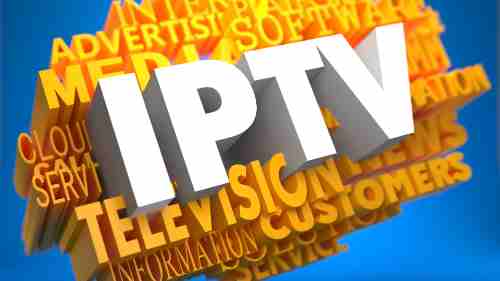IPTV, or Internet Protocol Television, is an increasingly popular way of delivering television and video services. Unlike conventional television, it is delivered via an internet connection rather than through traditional broadcast signals. This means that it is possible to view television and video content from any device connected to the internet, including computers, smartphones and tablets. An IPTV service like peoplestv.nu can provide viewers with access to a wide range of content, including TV shows, movies, live sports and news. It is also a great way to access on-demand programming and to stream content from the cloud. IPTV has revolutionized the way we watch television and video content, giving viewers access to a wide variety of content and services that were once unavailable.
Definition and Overview of IPTV
IPTV stands for Internet Protocol Television, which is a digital television broadcasting system that uses the Internet Protocol to deliver video content. It is a method for delivering television programs and other multimedia content over a broadband connection, using the Internet or a private IP network. IPTV provides users with a wide variety of viewing options and access to content from different sources. IPTV enables content creators to deliver their content over a broadcast infrastructure and eliminates the need for distribution networks. The combination of increased bandwidth and the availability of high-speed internet connections has enabled IPTV to become a viable alternative to traditional cable, satellite and terrestrial broadcasting.
Advantages of IPTV over Traditional Cable
IPTV offers a number of advantages over traditional cable. Firstly, IPTV is more cost-effective than traditional cable, as it requires less equipment. Additionally, IPTV provides the user with greater control over their viewing experience, as they can choose to watch what they want when they want. Furthermore, IPTV offers on-demand options, which allow viewers to watch content whenever they please. This is particularly beneficial for viewers who are unable to watch their favorite shows at the same time every week. Finally, IPTV provides higher quality pictures and sound, as well as a more reliable signal than cable. As such, IPTV is becoming an increasingly popular choice for viewers.
Challenges of IPTV
IPTV has become an increasingly popular way to access television programming, but it is not without its challenges. Firstly, the quality of the video and audio streaming can vary greatly depending on the device used, the connection speed, and even the ISP. Secondly, IPTV systems can be prone to outages due to overloaded servers or unexpected service disruptions. Lastly, finding reliable IPTV services can be difficult, as there are many providers offering services of varying reliability and cost.
Impact of IPTV on the Media Industry
The impact of Internet Protocol Television (IPTV) on the media industry has been immense, with an unprecedented increase in viewership, subscription, and advertising revenue. By providing a platform for content providers to reach larger audiences and a more interactive experience for viewers, IPTV has put the traditional media industry on its head. Viewers can now access content without time or geographical constraints, while content providers can reach more viewers and make more money than ever before. Additionally, IPTV has enabled media companies to create more targeted ad campaigns, giving them a better understanding of their audiences and what they want.
Requirements for Using IPTV
The fifth requirement for using IPTV is having an adequate internet connection as well as a suitable device. The connection must be able to deliver the necessary bandwidth for smooth streaming. Depending on the quality that you desire, the connection speed should be at least 2-3 Mbps. As for the device, it should be compatible with IPTV and have enough processing power to handle the data stream. Additionally, it should have the right software and decoders, as well as display and audio capabilities.
Wrap Up
IPTV is the future of television. It offers a better viewing experience with more content, higher definition, and better quality images. It also offers convenience and cost-effectiveness as users can access their favourite TV shows and movies with just one subscription. IPTV also includes features like time-shifting and video-on-demand, which can make watching TV more enjoyable. With IPTV, the future of television is bright.
